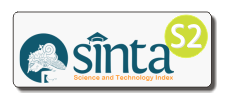Quantitative Sharia-Screening Effect on Portfolio Performance and Volatility: Evidence from Indonesia
DOI:
https://doi.org/10.14421/grieb.2021.091-04Keywords:
Quantitative Sharia-Screening, Debt-Ratio, Sharia-Portfolio Return, Conventional-Portfolio Return, and Portfolio Volatility.Abstract
The aim of this study is to examine the comparative performance and volatility between Sharia and conventional portfolios listed on the Indonesia Stock Exchange (IDX) and to investigate the effect of quantitative (debt-ratio) screening on the Sharia-and-conventional-portfolios returns specifically applied in the selected public firms with the inter-industrial low-correlations. Applying a non-parametric test, the autoregressive integrated moving average (ARIMA) model, and the regression analysis, the results suggest that there is no difference in performance between Sharia and conventional portfolios; Sharia portfolios show the lower risks than conventional portfolios. Using quantitative Sharia-screening, the debt-to-equity ratio (DER) affects Sharia-portfolio returns, but not conventional-portfolio returns. This study contributes to providing country-specific evidence on applying quantitative Sharia-screening. Taking notice of the existing high-profile debt-ratio and applying the relatively loose standard of quantitative Sharia-screening for the public firms in Indonesia, this suggests that a country-specific quantitative Sharia-screening standard should be supported.
References
Albaity, M., & Ahmad, R. (2008). Performance of syariah and composite indices: Evidence from Bursa Malaysia. Asian Academy of Management Journal of Accounting and Finance, 4(1), 23–43.
Arista, D., & Astohar, A. (2012). Analysis of factors affecting stock returns (Analisis faktor–faktor yang mempengaruhi return saham). Jurnal Ilmu Manajemen Dan Akuntansi Terapan (JIMAT), 3(1), 1-15.
Ashraf, D., Felixson, K., Khawaja, M., & Hussain, S. M. (2017). Do constraints on financial and operating leverage affect the performance of Islamic equity portfolios? Pacific-Basin Finance Journal, 42(April), 171–182. https://doi.org/10.1016/j.pacfin.2017.02.009
Bauer, R., Koedijk, K., & Otten, R. (2005). International evidence on ethical mutual fund performance and investment style. Journal of Banking & Finance, 29(7), 1751–1767. https://doi.org/10.1016/j.jbankfin.2004.06.035
Bellalah, M., Rehman, A., & Masood, O. (2013). Shariah compliant screening practices, théorie economique, modélisation et applications (Université de Cergy-Pontoise, Thema Working Paper No. 2013-16). https://www.semanticscholar.org/paper/SYARIAH-COMPLIANT-SCREENING-PRACTICES-Bellalah Rehman/571efffaa54ab657ee1590d941d7bb187f13c0d6
Derigs, U., & Marzban, S. (2008). Review and analysis of current shariah-compliant equity screening practices. International Journal of Islamic and Middle Eastern Finance and Management, 1 (4), 285-303 https://doi.org/10.1108/17538390810919600
Djarwanto (2001). Statistik non-parametrik. BPFE.
Durand, D. (1952). Cost of debt and equity funds for business: Trends and problems of measurement. In Universities-National Bureau (Ed.), Conference on research in business finance (pp. 215-262). National Bureau of Economic Research. http://www.nber.org/chapters/c4790.pdf
El-Alaoui, A. O., Bacha, O. I., Masih, M., & Asutay, M. (2018). Does low leverage minimise the impact of financial shocks? New optimisation strategies using Islamic stock screening for european portfolios. Journal of International Financial Markets, Institutions and Money, 57(November), 160–184. https://doi.org/10.1016/j.intfin.2018.07.007
Fielnanda, R. (2017). The concept of screening sharia stocks in Indonesia (Konsep screening saham Syariah di Indonesia). AL-FALAH: Journal of Islamic Economics, 2(2), 103-122. https://doi.org/10.29240/jie.v2i2.255
Grossman, B. R., & Sharpe, W. F. (1986). Financial implications of South African divestment. Financial Analysts Journal, 42(4), 15–29. https://www.jstor.org/stable/4478945
Gujarati, D. N. (2009). Basic econometrics. Tata McGraw-Hill Education.
Hartono, J. (2009). Teori portofolio dan analisis investasi. BPFE.
Hassan, M. K., & Girard, E. (2010). Faith-based ethical investing: The case of Dow Jones Islamic Indices. Islamic Economic Studies, 17(2), 1-31.
Htay, S. N. N., Abedeen, Z., & Salman, S. A. (2013). Towards standardization of Shari’ah screening norms and practices. International Journal of Humanities and Social Science Invention, 2(11), 23–30.
Irkhami, N. (2016). Islamic ethical investment: Membincang aspek hukum dan ekonomi syariah. LP2M-Press.
Kasmir. (2017). Analisis laporan keuangan. Raja Grasindo Persada.
Listyaningsih, E., & Krishnamurti, C. (2015). How performance of Jakarta Islamic Index (JII) stocks relative to other stocks? Jurnal Dinamika Manajemen, 6(2), 145-164.
Markowitz, H. M. (1991). Foundations of portfolio theory. The Journal of Finance, 46(2), 469–477. https://doi.org/10.2307/2328831
Pok, W. C. (2012). Analysis of syariah quantitative screening norms among Malaysia Syariah-compliant stocks, Investment Management and Financial Innovations, 9(2), 69-80.
Rahman, A. A., Yahya, M. A., & Nasir, M. H. M. (2010). Islamic norms for stock screening: A comparison between the Kuala Lumpur Stock Exchange Islamic Index and the Dow Jones Islamic Market Index, International Journal of Islamic and Middle Eastern Finance and Management, 3(3), 228-240. https://doi.org/10.1108/17538391011072426
Najmudin (2011). Manajemen keuangan dan aktualisasi syar’iyyah modern. Penerbit Andi.
Sani, N. A., & Othman, R. (2013). Revision of shariah screening methodology: The status of Shariah-compliant companies in Malaysia (Proceedings of the 3rd International Conference on Management (3rd ICM 2013), Malaysia, 51–63).
Setiawan, C., & Oktariza, H. (2013). Syariah and conventional stocks performance of public companies listed on Indonesia Stock Exchange. Journal of Accounting, Finance and Economics, 3(1), 51–64.
Suharli, M. (2005). Empirical study of two factors affecting stock returns in the food & beverages industry on the Jakarta Stock Exchange (Studi empiris terhadap dua faktor yang mempengaruhi return saham pada industri food & beverages di Bursa Efek Jakarta). Jurnal Akuntansi dan Keuangan, 7(2), 99–116.
Winarno, W. W. (2009). Analisis ekonometrika dan statistika dengan Eviews. UPP STIM YKPN.
Zainudin, N. B., Miskam, S. B., & Sulaiman, M. B. (2014). Revised shariah screening methodology for Shariah-compliant securities: New standard to meet global expectation (Conference on Management and Muamalah, International Islamic University College Selangor, Malaysia).
Downloads
Published
Issue
Section
License
Global Review of Islamic Economics and Business is licensed under a
Creative Commons Attribution-ShareAlike 4.0 International License



















